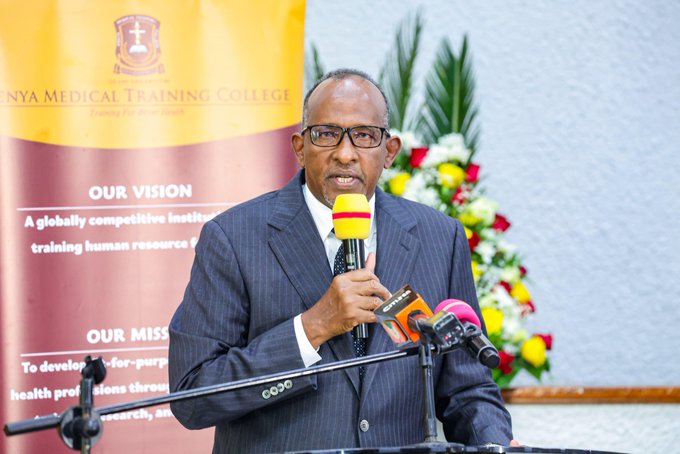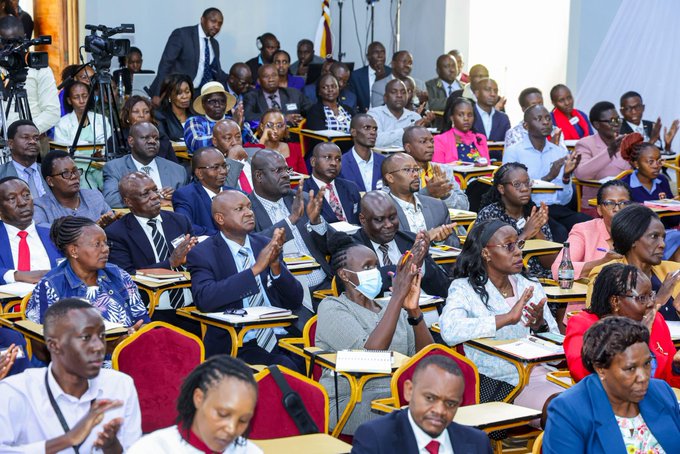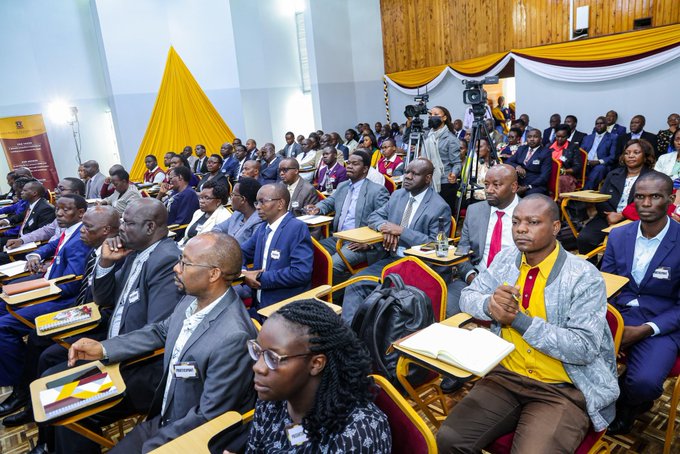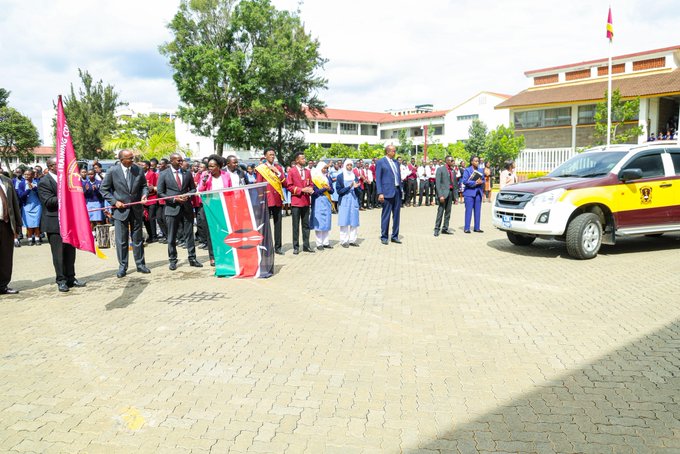NAIROBI, Kenya — Health Cabinet Secretary Aden Duale has announced the abolition of compulsory practical attachment fees for students of Kenya Medical Training College (KMTC) at Level Six public hospitals, a move aimed at easing the financial burden on trainee health professionals.
Speaking on Tuesday at the 8th Biennial KMTC Scientific Conference held at the college’s Nairobi headquarters, CS Duale revealed that attachment fees charged by flagship hospitals under his ministry—including Kenyatta National Hospital and Kenyatta University Teaching and Referral Hospital—will be scrapped immediately.
“One of the issues raised by KMTC leadership, board, and management was the clinical attachment fees students are forced to pay when rotating through public hospitals. That will no longer happen,” said Duale.
The Cabinet Secretary cited the wide disparity in fees imposed by various institutions, which often range from Sh1,000 in counties like Garissa to Sh10,000 or more in some hospitals.
He questioned the justification of these charges, noting that students contribute valuable services during their attachments.
“For hospitals outside my direct jurisdiction, I will engage the Council of Governors to discuss harmonising these fees. But for Level Six hospitals under my ministry, this practice ends now to restore trust and order within the health sector,” Duale declared.
Presided over the official opening of the 8th Biennial Kenya Medical Training College (KMTC) Scientific Conference at KMTC Headquarters, Nairobi.Under the theme “Advancing Equity in a Rapidly Changing Environment,” the conference brought together key stakeholders in health,
The announcement addresses a long-standing challenge for many KMTC students, who have faced significant financial obstacles in paying attachment fees, often compounded by accommodation and transport costs.
This burden has been particularly heavy on students from economically disadvantaged backgrounds.
Duale also reaffirmed the Ministry of Health’s commitment to supporting KMTC as a centre of excellence in medical training.
He warned against the unchecked proliferation of health courses that do not meet professional competency standards.
“KMTC will not issue credentials without competence. We will not allow institutions to become part of the problem. All training programmes must align with Kenya’s evolving public health needs,” the CS stressed.







